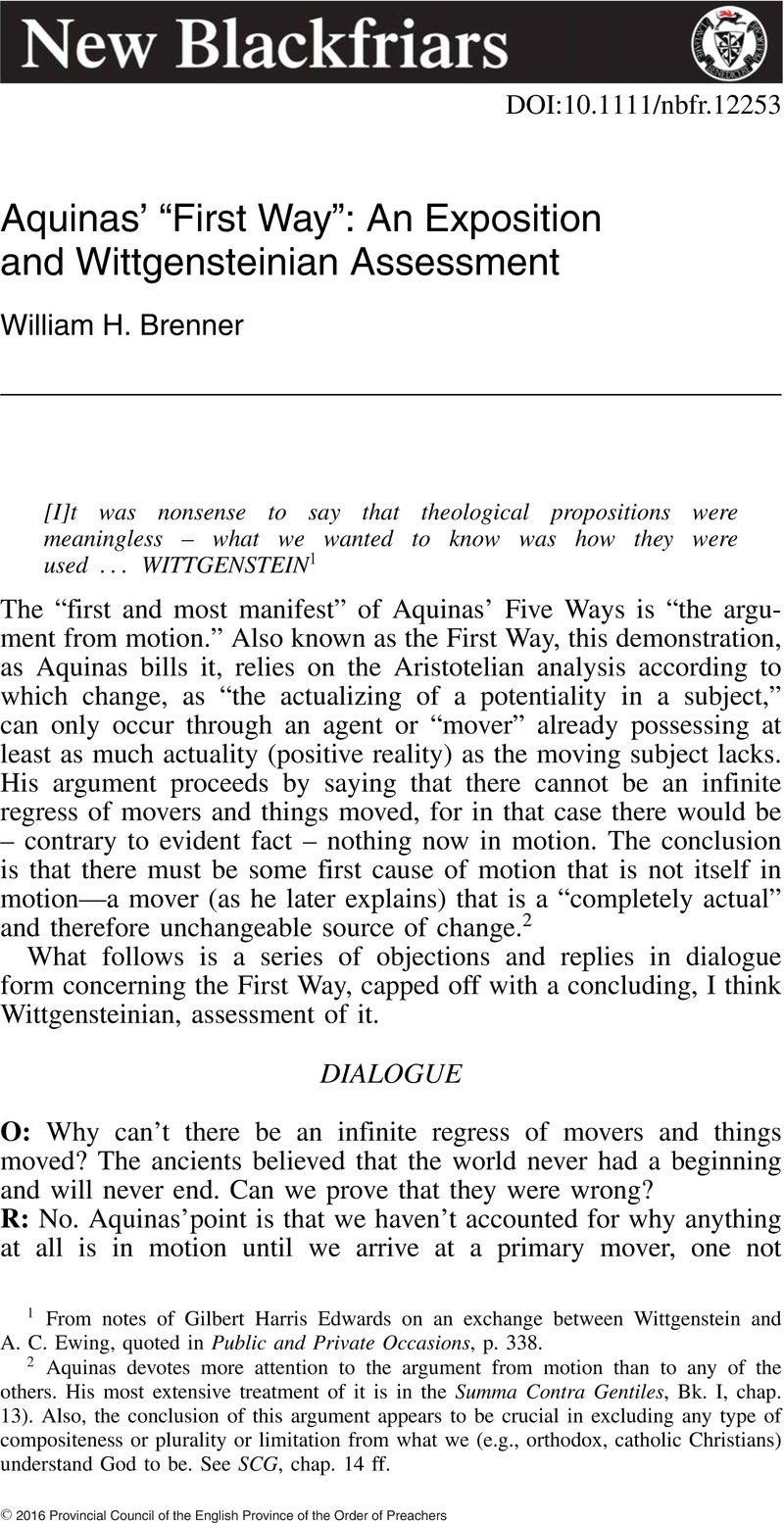No CrossRef data available.
Article contents
Aquinas’ “First Way”: An Exposition and Wittgensteinian Assessment
Published online by Cambridge University Press: 01 January 2024
Abstract
An abstract is not available for this content so a preview has been provided. Please use the Get access link above for information on how to access this content.

Information
- Type
- Original Article
- Information
- Copyright
- Copyright © 2016 Provincial Council of the English Province of the Order of Preachers
References
Aquinas, St. Thomas. Summa Contra Gentiles. Garden City, New York: Doubleday & Company, 1955.Google Scholar
Aquinas, St. Thomas. Summa Theologiae. Tr. by Fathers of the English Dominican Province. Chicago: Encyclopedia Britannica, Inc., 1952.Google Scholar
Diamond, Cora. “Riddles and Anselm's Riddle,” in The Realistic Spirit. Cambridge, Massachusetts: The MIT Press, 1991.10.7551/mitpress/5797.001.0001CrossRefGoogle Scholar
Rhees, Rush. Rush Rhees on Religion and Philosophy. Ed. Phillips, D.Z. and von der Ruhr, Mario. Cambridge: Cambridge University Press, 1997.Google Scholar
Wittgenstein, Ludwig. Culture and Value. Tr. Winch, Peter. Oxford: Basil Blackwell, 1980.Google Scholar
Wittgenstein, Ludwig. On Certainty. Denis Paul, Tr. and Anscombe, G.E.M. Oxford: Basil Blackwell, 1969.Google Scholar
Wittgenstein, Ludwig. Public and Private Occasions. Ed. Klagge, James C. and Nordmann, Alfred. New York: Rowman & Littlefield, 2003.Google Scholar

